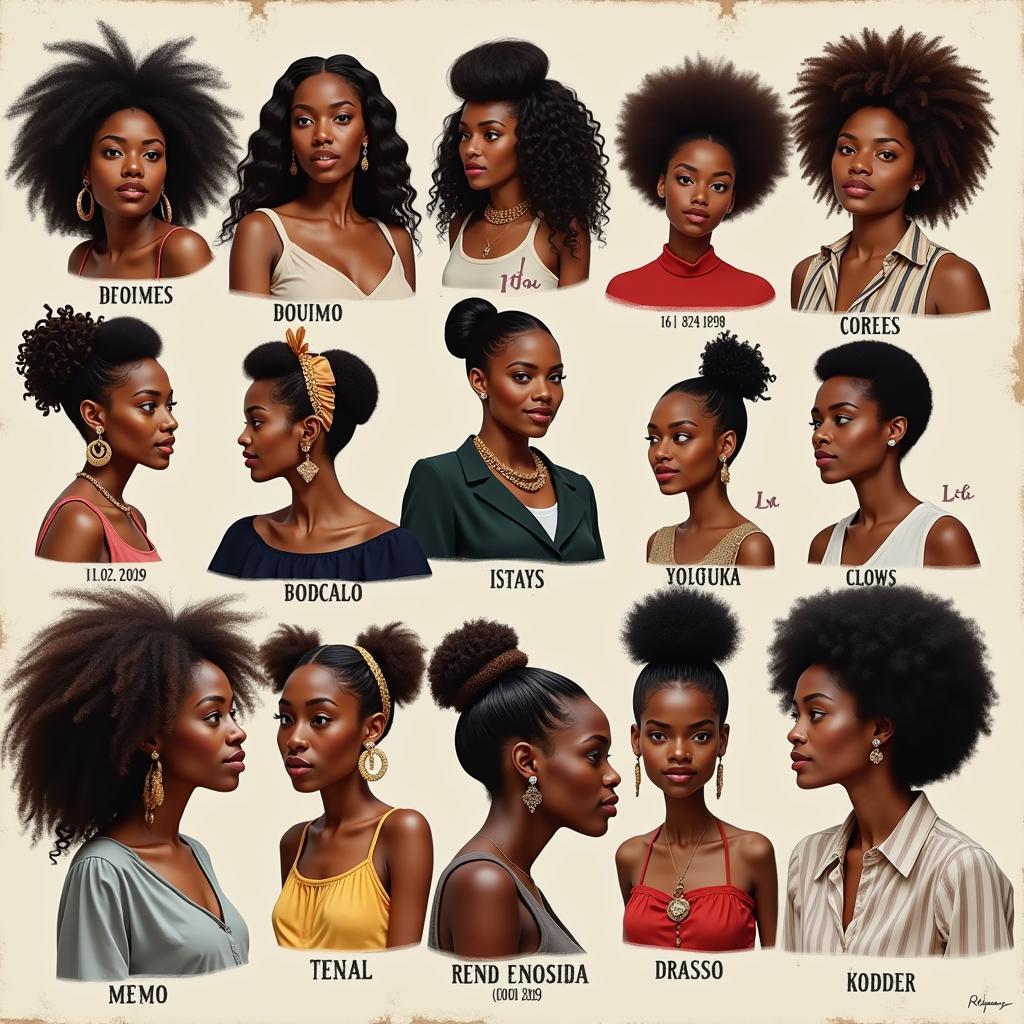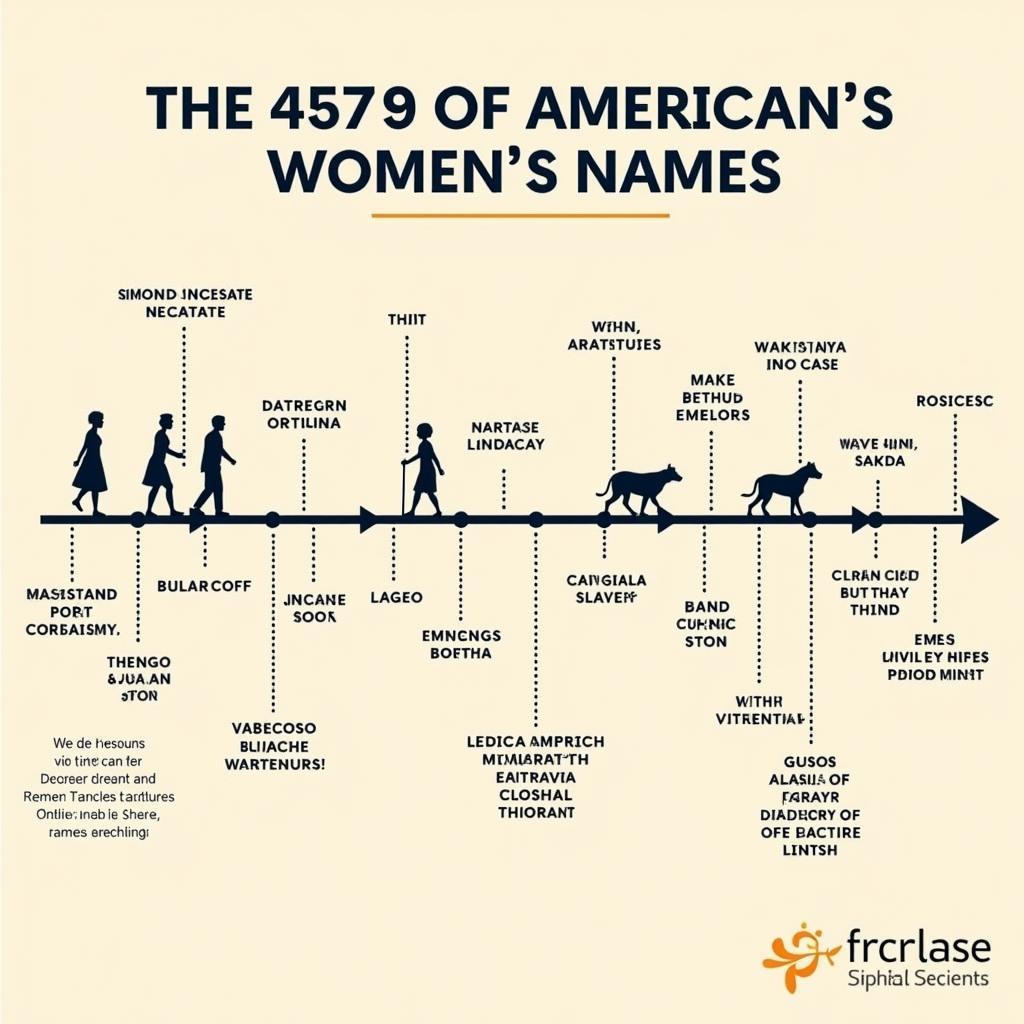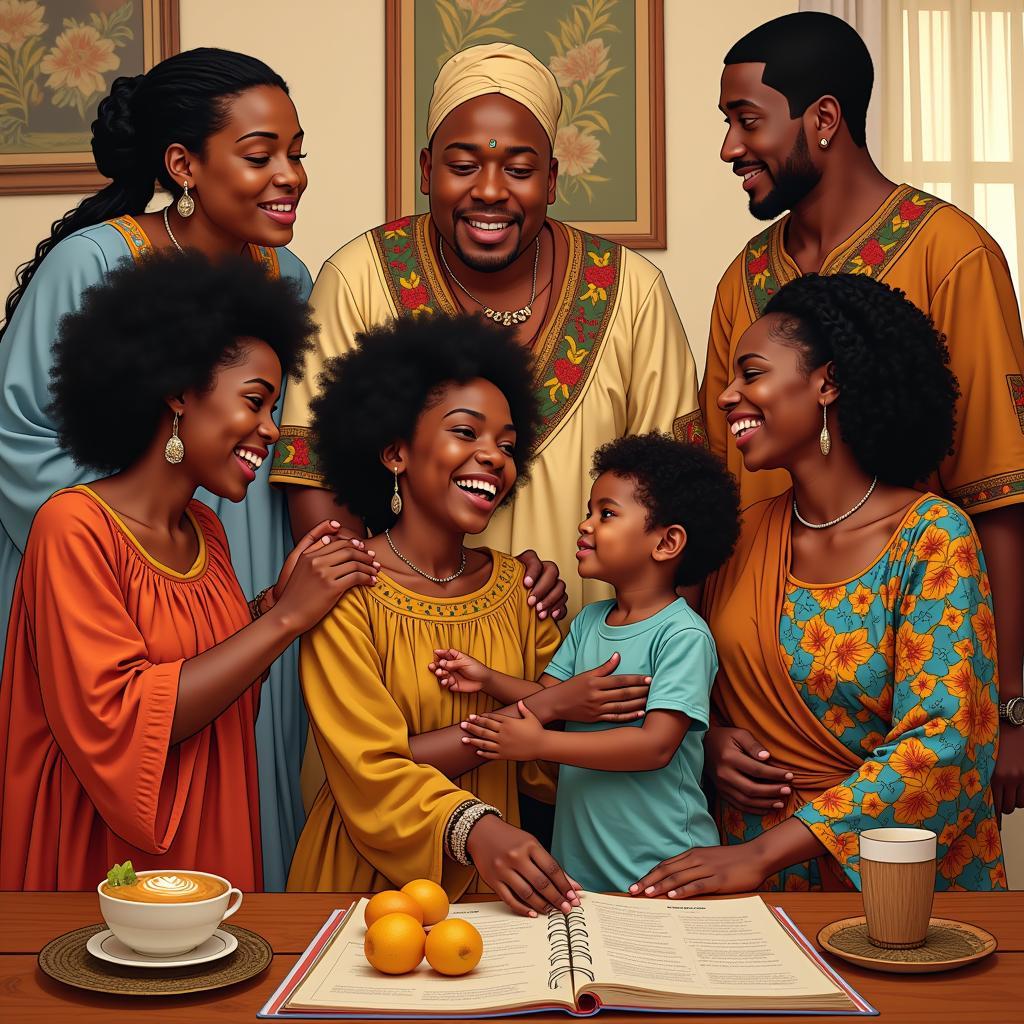Discovering the Rich History of African American Women Names
African American Women Names are a testament to resilience, creativity, and cultural heritage. They reflect a journey through history, encompassing influences from Africa, slavery, Christianity, and the ongoing quest for identity and self-expression. This exploration delves into the fascinating evolution and significance of these names.
 African American Women's Names Throughout History
African American Women's Names Throughout History
The Power and Meaning Behind African American Women Names
From the earliest days of arrival in America, naming practices became a crucial aspect of maintaining cultural ties and forging a sense of community. During slavery, many Africans were stripped of their birth names and given names by their enslavers. This act of forced renaming was a tool of dehumanization, aiming to erase their identities and sever connections to their ancestry. However, African Americans found ways to resist and reclaim their naming traditions.
One common practice was subtly altering the pronunciation or spelling of given names, preserving a semblance of their original identity. They also incorporated traditional African naming practices, often bestowing names that reflected a child’s birth circumstances, personality traits, or hopes for the future. african dress and headwrap symbolized both cultural identity and resilience during this challenging period.
What is the significance of traditional African naming practices? They served as a powerful means of preserving cultural identity and honoring ancestral heritage. These names were often imbued with deep spiritual and symbolic meaning, reflecting the values and beliefs of the community.
From Biblical Inspiration to Modern Trends: A Journey Through Naming Conventions
With the advent of Christianity, biblical names became increasingly popular among African Americans. Names like Sarah, Mary, and Rebecca became commonplace, often alongside traditional African names or adaptations of European names. This blending of naming traditions created a unique tapestry reflecting the diverse influences shaping African American identity.
The Civil Rights Movement marked a pivotal moment in the evolution of African American women names. There was a resurgence of interest in African heritage, and many parents began choosing names that reflected this reconnection with their roots. Names like Aaliyah, Imani, and Nia gained popularity, embodying a sense of pride and cultural affirmation. african english literature writers often explored these themes of identity and heritage in their works.
The Influence of Popular Culture and Individual Expression
In recent decades, African American women names have continued to evolve, reflecting the dynamism and creativity of the culture. Unique names and creative spellings have become increasingly common, showcasing a desire for individuality and self-expression. 90s african hairstyle was another expression of this burgeoning individuality.
“Names are more than just labels,” states Dr. Anika Toussaint, a cultural anthropologist specializing in African American naming practices. “They are powerful symbols of identity, reflecting the individual’s history, heritage, and aspirations.”
 Evolution of African American Women Names
Evolution of African American Women Names
Unique and Creative Names: Embracing Individuality
The trend toward unique and creative names reflects a desire to celebrate individuality and break free from traditional naming conventions. These names often draw inspiration from various sources, including nature, literature, and popular culture.
How do these names reflect cultural evolution? They represent a shift towards greater self-expression and a celebration of cultural diversity. These names often challenge conventional notions of what constitutes a “proper” name, reflecting a growing acceptance of individuality and cultural difference. african american romance authors often feature characters with unique names, reflecting this trend in contemporary culture.
“Choosing a name for your child is a deeply personal decision,” observes Ms. Keisha Williams, a family historian and genealogist. “It’s an opportunity to honor your heritage, express your creativity, and imbue your child with a name that carries meaning and significance.”
Conclusion: A Legacy of Strength and Beauty in African American Women Names
African American women names are a reflection of a rich and complex history. They tell stories of resilience, creativity, and the ongoing search for identity. From traditional African names to biblical influences and modern expressions of individuality, these names represent a powerful legacy of strength, beauty, and cultural pride. They remind us that names are not simply labels, but rather powerful symbols of identity and belonging. Learning about the history and meaning behind these names provides us with a deeper understanding of the diverse experiences and contributions of African American women. What are some common African American women names? The answer depends on the era and cultural context. The beauty lies in the diversity and evolution of these names. african head scarf name plays an integral role in the rich tradition of headwear and naming in various African cultures.
FAQ
- What are some common themes in traditional African names?
- How did slavery impact African American naming practices?
- What is the significance of biblical names in African American culture?
- How have modern trends influenced African American women names?
- Where can I find more resources on African American genealogy and naming practices?
- What are some unique and creative African American names?
- How do I choose a meaningful name for my child?
When you need assistance, please contact us at Phone: +255768904061, Email: kaka.mag@gmail.com Or visit us at: Mbarali DC Mawindi, Kangaga, Tanzania. We have a 24/7 customer service team.



